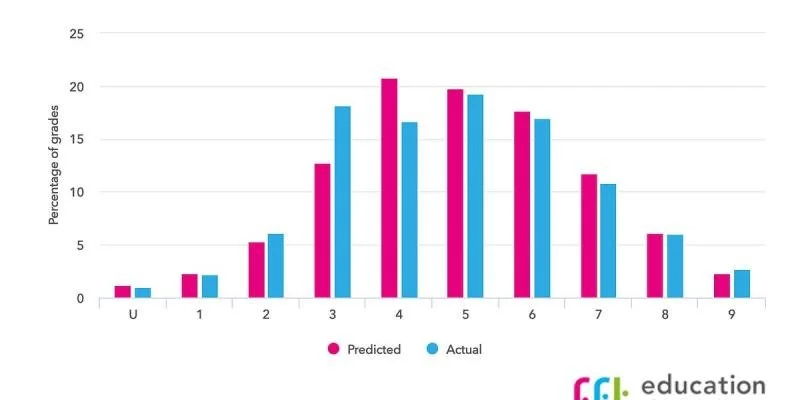UK Education News - EducAd Blog
Everything from useful resources on the education system in the UK to announcements of our events and seminars. Come back often or join our newsletter to stay in touch.
It feels like everywhere you look, someone is talking about Artificial Intelligence. You might see headlines about robots passing exams or writing code faster than humans. For students planning their future, or parents wondering what the job market will look like in ten years, it can be a little overwhelming.
You might be asking yourself: "If computers can do so much, will my skills still be valuable?"
Applying to a UK university or private school often seems like trying to predict the weather. You have a forecast (your predicted grades), but you also know that British weather is famous for doing exactly what it wants, regardless of what the weatherman says.
Choosing your subjects for Sixth Form is one of the first major decisions you'll make on your academic journey. It can feel like a lot of pressure, especially when you're trying to balance what you enjoy, what you're good at, and what might lead to a great career. But don't worry—this guide is here to help you navigate the process with confidence.
For families seeking an elite international education, TASIS (The American School in Switzerland) stands as a premier choice. Nestled in the picturesque Swiss town of Lugano, TASIS combines rigorous academics with a stunning campus environment and a truly global perspective that prepares students for admission to leading universities worldwide.
Stressed about uni applications? We get it. Choosing the right course, writing a personal statement, and hitting UCAS deadlines is a lot to handle. But don't worry, we've got the thing to help you out.
A personal statement can be the deciding factor between acceptance and rejection. Yet most students neglect the importance of writing one that truly stands out from thousands of other applications competing for the same opportunity.
The difference between a compelling motivation letter and a forgettable one often lies in the details—how you structure your narrative, demonstrate genuine passion, and connect your experiences to your future goals. Understanding what admissions committees actually look for can transform your approach entirely.
When we think of academic achievement, we often picture solitary figures hunched over textbooks in libraries or burning the midnight oil alone. But behind many of the UK's top students, there's a powerful, often unnoticed, catalyst for success: a great tutor. Far from being a sign of struggling, tutoring has evolved into a strategic tool for unlocking potential, building confidence, and mastering complex subjects.
When it comes to your university application, A-Levels often take the spotlight. It's easy to see why—they represent your most recent academic achievements and are the final hurdle before higher education. This focus can sometimes lead students to wonder how much their GCSE results matter. Are they simply a stepping stone, or do they play a crucial role in your UCAS application?
In England, the year group according to age allocation is based on age groups from September to August. This means a child should start Reception in September after turning 4. Although primary school officially begins at age 5, enrolling in Reception is the standard practice followed by most families. The same approach applies to subsequent year groups. For example, children enter Year 7 in September after turning 11 and Year 10 in September after turning 14.
Bishop's Stortford stands as one of Hertfordshire's most sought-after locations for families prioritising exceptional education. With outstanding transport links to London and Cambridge, this historic market town offers an impressive array of educational institutions that consistently deliver remarkable results. From prestigious independent schools to high-performing state institutions, Bishop's Stortford provides educational opportunities that can shape your child's entire future.









